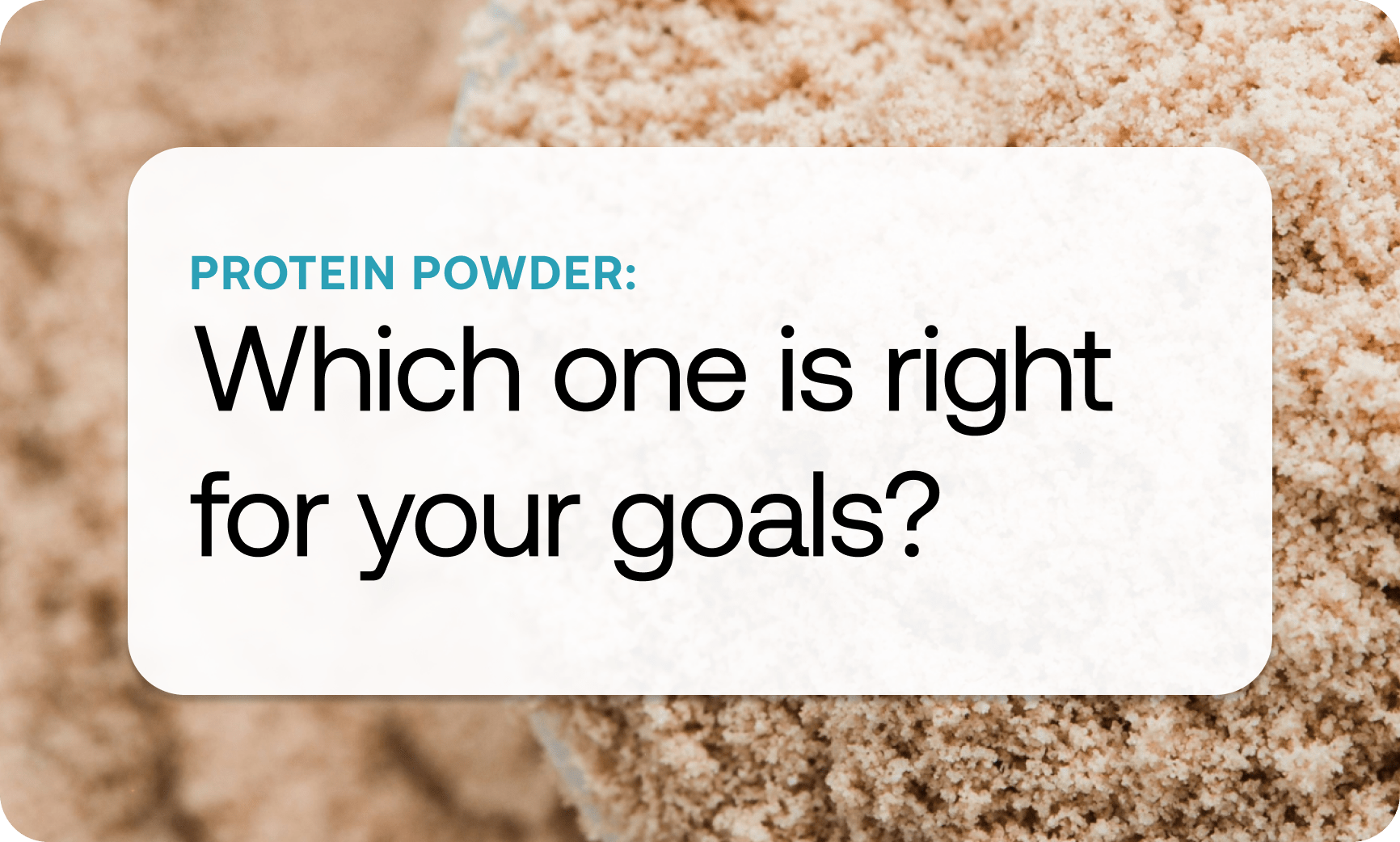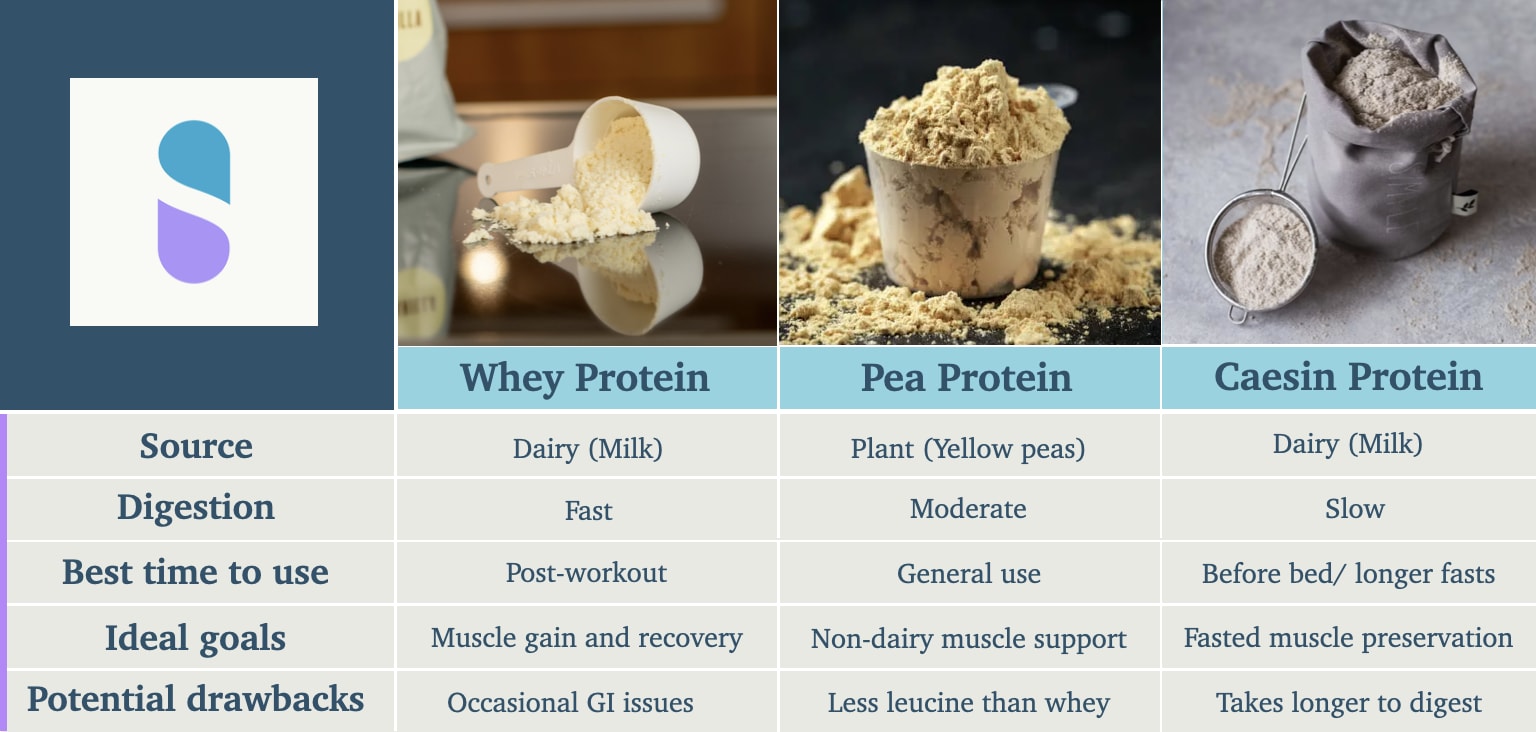Science Corner 11 | Protein Powder: Which one is right for your goals?

Confusion about protein supplementation may be holding back your results. This question floods my inbox constantly: "Which protein powder should I take?" or "Is whey really better than plant protein?" These are not simple questions, and generic answers do not serve your specific needs.
When people ask me "which protein is best?" my first response is always "best for what?" Your body has different needs at different times, and selecting the right protein type functions as a cornerstone in your nutrition strategy. The protein you choose impacts everything from how quickly your muscles recover to how effectively you build strength over time.
The Rapid Responder: Whey Protein
Whey stands as the gold standard in performance nutrition for legitimate reasons. This complete protein delivers an impressive amino acid profile, particularly rich in leucine—the primary trigger for muscle protein synthesis. When consumed post-workout, whey provides approximately 2.5 grams of leucine per 25-gram serving, effectively activating your body's muscle-building machinery.
Beyond muscle support, whey contributes significantly to your immune defense system through its high cysteine content, which drives production of glutathione—your body's master antioxidant. This makes whey not just a muscle builder but a comprehensive recovery tool.
Optimal application: Immediate post-training recovery, rapid amino acid delivery, strength athletes requiring maximum muscle protein synthesis activation.
The Plant Powerhouse: Pea Protein
Do not underestimate this plant-based contender. Pea protein delivers impressive results despite common misconceptions about plant proteins. While containing slightly less leucine than whey, research demonstrates comparable strength and muscle development outcomes when consumed consistently at appropriate doses (typically 25-30 grams).
Pea protein offers additional benefits through its high arginine content, supporting vascular function and circulation—critical factors in nutrient delivery and recovery. Its neutral flavor profile and exceptional digestibility make it a versatile option for daily implementation.
Optimal application: Plant-based athletes, individuals with dairy sensitivities, those seeking sustainable protein options with minimal digestive impact.
The Overnight Guardian: Casein Protein
Casein operates on a completely different timeline than whey, releasing amino acids gradually over 6-8 hours. This slow-digestion mechanism creates a sustained amino acid environment that prevents muscle breakdown during fasting periods.
Rich in glutamine, casein supports gut barrier integrity and immune function—essential components of recovery that extend beyond muscle tissue. Its satiating properties make it particularly valuable during caloric restriction phases where muscle preservation becomes paramount.
Optimal application: Pre-sleep recovery nutrition, muscle preservation during fasting periods, extended recovery support between training sessions.

Strategic Implementation
The most effective approach often involves strategic implementation of multiple protein types based on your daily physiological demands. Your protein selection should align with your immediate metabolic requirements, training phase, and recovery needs.
Remember that protein quality matters as much as quantity. Focus on options with complete amino acid profiles and minimal unnecessary additives. Track your results objectively through performance metrics rather than relying solely on subjective feedback.
The protein you select represents more than a post-workout ritual—it functions as a targeted intervention in your physiological recovery process. Choose accordingly.
--
Personal note from Jordan
After years of experimentation, I exclusively use pea protein in my daily routine. Do I understand the theoretical benefits of cycling between protein types? Absolutely. Do I believe the benefits justify the added complexity? For some people yes, just not for my goals. Pea protein delivers everything I need, digestive comfort, sustained recovery, and consistent results, without the optimization obsession that paralyzes so many. Knowledge empowers choice; understanding protein science has ironically simplified my approach rather than complicating it. Focus on consistent intake of quality protein first, then optimize only if your performance genuinely demands it. Most of us it is about protein adequacy, not protein perfection. The more you know, the better choices you can make.
